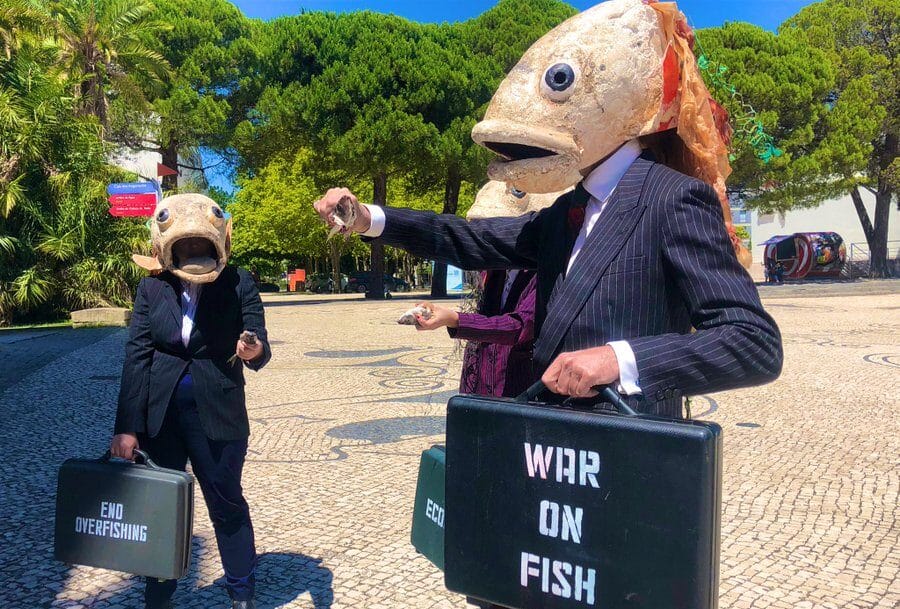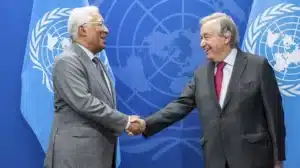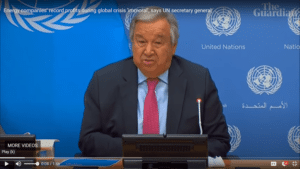“Drastic action to face ocean emergency” must come from this week’s event
Every player taking part in this week’s UN Oceans Conference in Lisbon agrees on one thing: drastic action to face the ocean emergency must come from the five days of talks, presentations and expert witness accounts.
Today is day two of the event co-hosted by Portugal and Kenya. It promises sessions on sustainable economy and conservation of marine ecosystems, side events on the regulation of the law of the sea and “blue tourism”, and an “ocean pledge“.
PM António Costa has tweeted on the importance of “drastic actions” after meeting with UN secretary general António Guterres, identified by Portugal’s president Marcelo as one of the few ‘good men’ involved in this debate.
Mr Guterres opened the conference with strong words on the need to save the oceans, protect the people whose lives depend on them, invest in coastal infrastructure that is climate resistant and reduce carbon emissions that are relentlessly destroying marine life.
This is one of Mr Guterres’ favourite themes. He has been sending out these messages since long before the famous Time Magazine cover that had him knee-deep in water. This time, maybe (hopefully), things will change.
His message in Lisbon has been that the maritime transport sector must commit to reducing carbon emissions to zero by 2050; countries must commit to mapping the seabed (achieving 80% cover by 2030) and creating conditions so that the sea can become a model for the way global problems are managed, instead of a stark reminder that too few care.
Tweeting following their meeting, António Costa has committed to classifying 30% of Portugal’s marine areas by 2030, and to having all of its fishing stocks within sustainable biological limits.
“In António Costa’s perspective, with the same ambition with which one sought to reach the Moon or Mars, it is now “time to come down to Earth, the planet that is blue, because it is the planet of the oceans, our planet”, writes Lusa.
“I hope that, once again, Lisbon will be a milestone in humanity’s reunion with the oceans,” he said.
Today will see ‘a leaders’ lunch’ debating the theme: ‘a sustainable ocean economy’ as well as the launch of what is billed as the “Ocean Promise of the United Nations Development Programme” which aims to support the recovery of socio-economic losses caused by poor ocean management.
Unavoidable truths of the state the world’s seas have been allowed to fall into have been aired at this second oceans conference (the first having taken place in New York in 2017) – perhaps one of the most salutory interventions coming from Brazilian biologist Alexander Turra who stressed the world’s seas are sick because society is sick. Until fundamental inequalities are addressed – ‘until empathy takes the place of entropy’ – Turra’s message was that problems cannot be effectively tackled…
natasha.donn@portugalresident.com

























